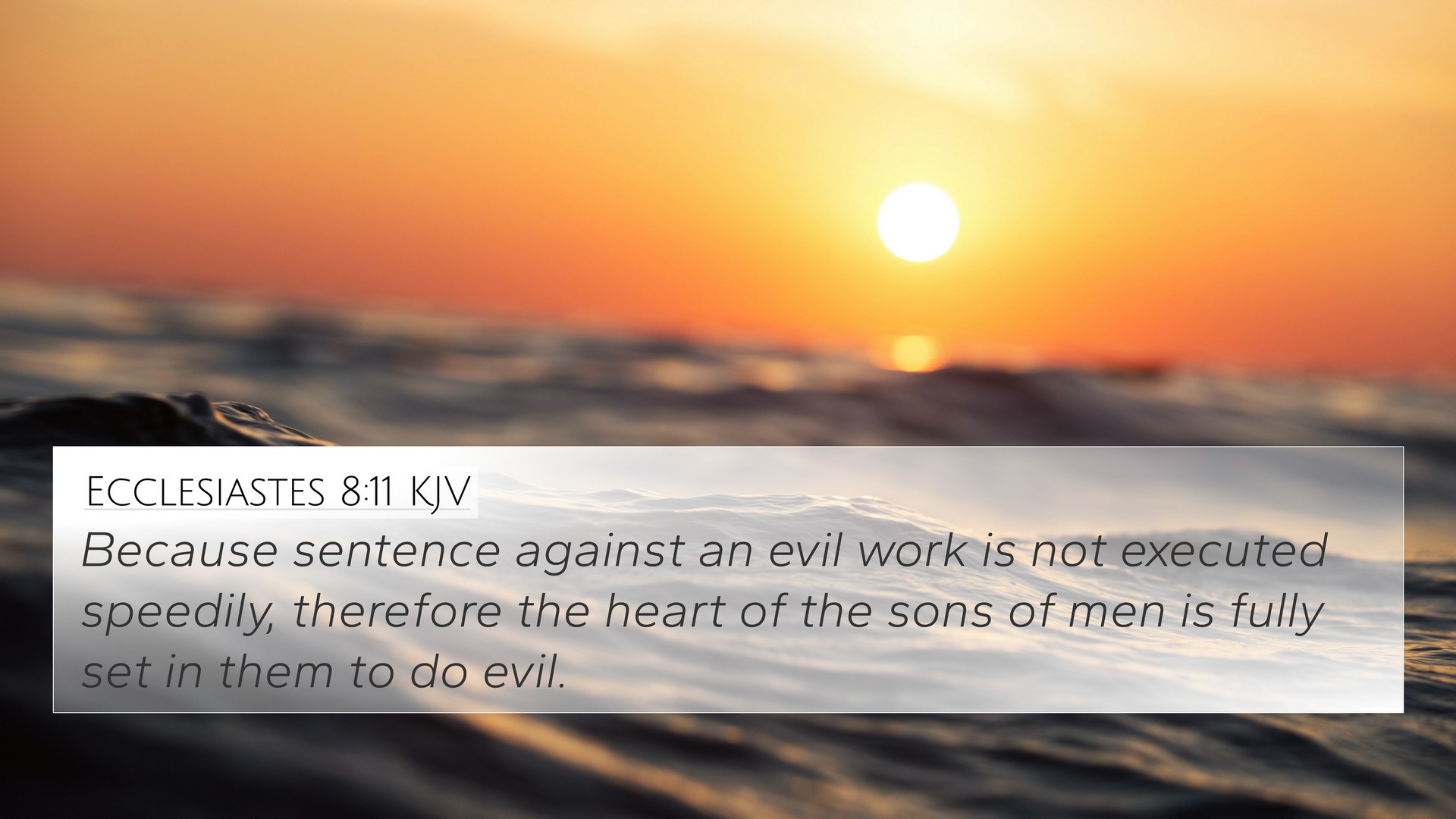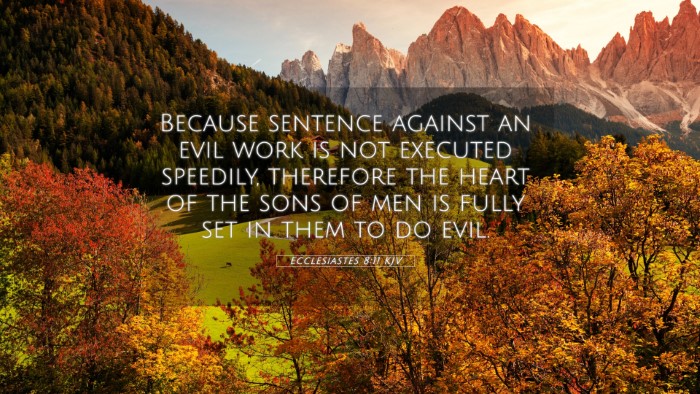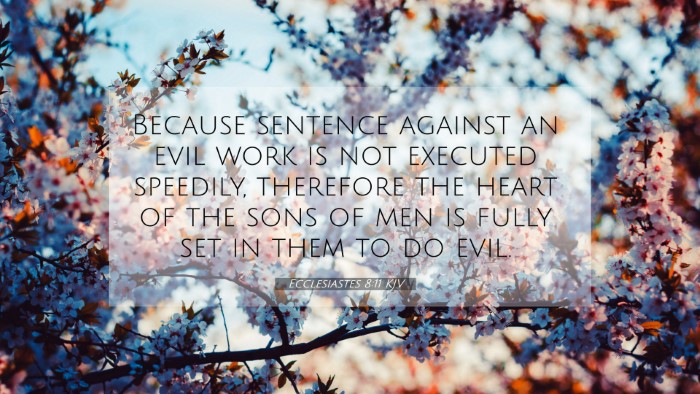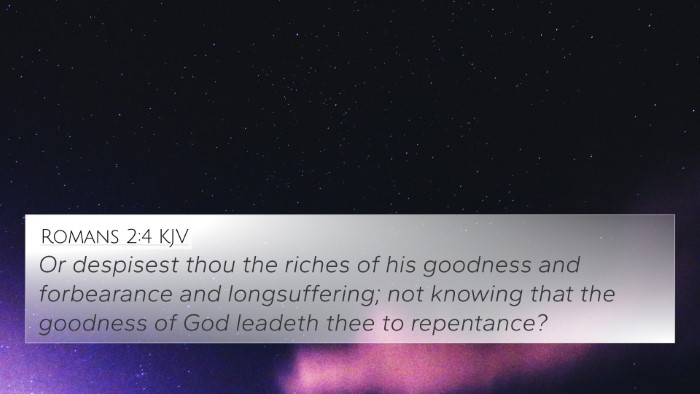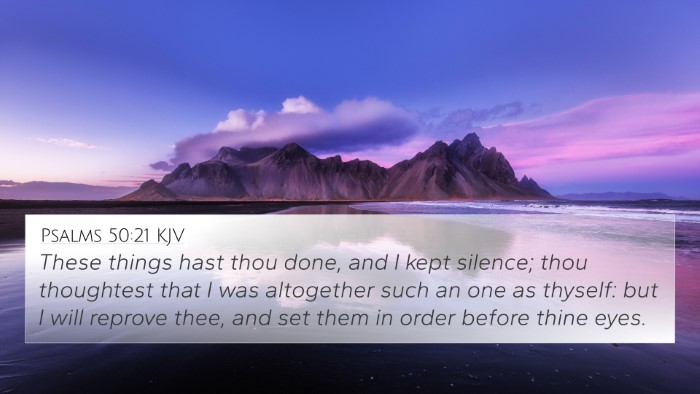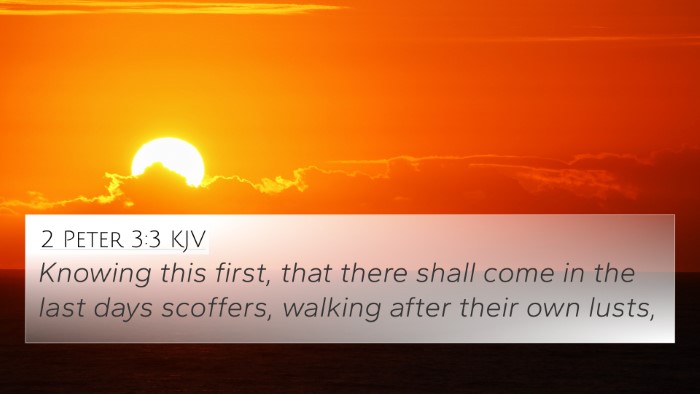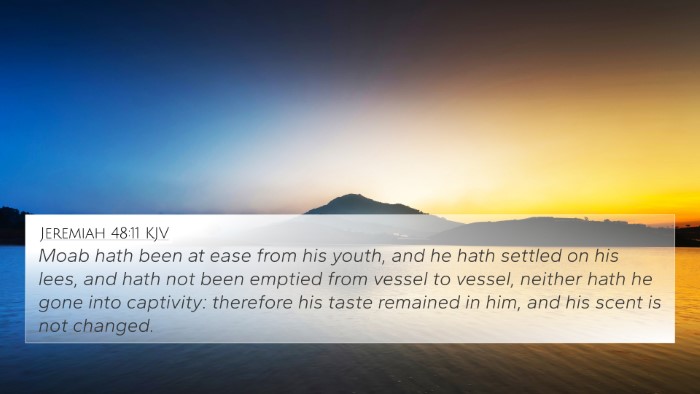Understanding Ecclesiastes 8:11
Ecclesiastes 8:11 states: "Because the sentence against an evil deed is not executed speedily, therefore the heart of the sons of men is fully set in them to do evil."
This verse addresses a significant moral and philosophical observation about human behavior and the administration of justice. Let's explore its meaning through a combination of insights from public domain commentaries.
Summary of Insights
The overarching theme of Ecclesiastes 8:11 is the consequences of delayed justice and the nature of human sinfulness.
-
Matthew Henry:
Henry points out that when penalties for wrongdoing are not swiftly enforced, people may become emboldened in their sinful actions. This reflects a dangerous attitude where the absence of immediate consequences leads individuals to indulge in sin without fear.
-
Albert Barnes:
Barnes emphasizes the moral decay that arises from a perception of impunity. He notes that the delay in punishment can lead to a hardened heart, where people fully commit to their evil ways, disregarding moral law and divine authority.
-
Adam Clarke:
Clarke elaborates on the idea that people may misconstrue God's silence or delay in enacting justice as approval of their actions, thus leading to further transgressions. He suggests that such behavior is a reflection of a person's understanding of justice and their relationship with God.
Thematic Connections
This verse not only highlights the consequences of delayed justice but also loops back to various thematic questions regarding justice, sin, and divine authority. Here are some Bible verse cross-references that delve deeper into these themes:
- Romans 2:6-8: Discusses God's judgment and how those who do not seek after righteousness will receive wrath.
- Galatians 6:7-8: Emphasizes that one reaps what they sow, reinforcing that evil actions lead to negative outcomes.
- Proverbs 11:21: Assures us that the wicked will not go unpunished, highlighting divine justice.
- Psalms 73:18-20: Reflects on the apparent prosperity of the wicked and God's eventual justice.
- Isaiah 26:10: Indicates that despite showing favor, those who do wrong will not learn righteousness.
- Proverbs 19:29: Speaks about punishment for scoffers and the correction of fools.
- Ecclesiastes 12:14: Concludes that God will bring every deed into judgment, whether good or evil, reinforcing the theme of eventual justice.
Connecting Themes of Justice and Human Behavior
In studying Ecclesiastes 8:11, we can observe how the Bible frequently addresses the themes of justice and human nature across various scriptures. These connections can be utilized for deeper understanding in cross-reference studies. By examining these themes, we acknowledge the persistent issue of human rebellion against divine order.
Using Bible Cross-References
For those searching for tools for Bible cross-referencing, consider using a Bible concordance or Bible cross-reference guide. These resources help you identify similar themes or verses that resonate with Ecclesiastes 8:11, allowing for a more comprehensive exploration of biblical teachings.
Conclusion
In summary, Ecclesiastes 8:11 serves as a profound reminder of the moral implications of delayed justice and the inherent tendencies of the human heart toward evil. The themes presented in this verse resonate throughout Scripture, inviting readers to reflect on the nature of sin, justice, and God's ultimate authority over human affairs.
By engaging in comparative Bible verse analysis, one can better understand the intricacies of biblical texts and how they inform each other on various themes. This verse encourages believers to be vigilant, aware, and repentant of the inclinations toward sin that arise from the tempting narrative of unjust delay.
Exploring Related Themes
As you delve deeper into your study of the Bible, consider exploring the following related themes:
- Identifying connections between Old and New Testament
- Cross-referenced themes in the Bible
- Links between the Prophets and Apostolic teachings
